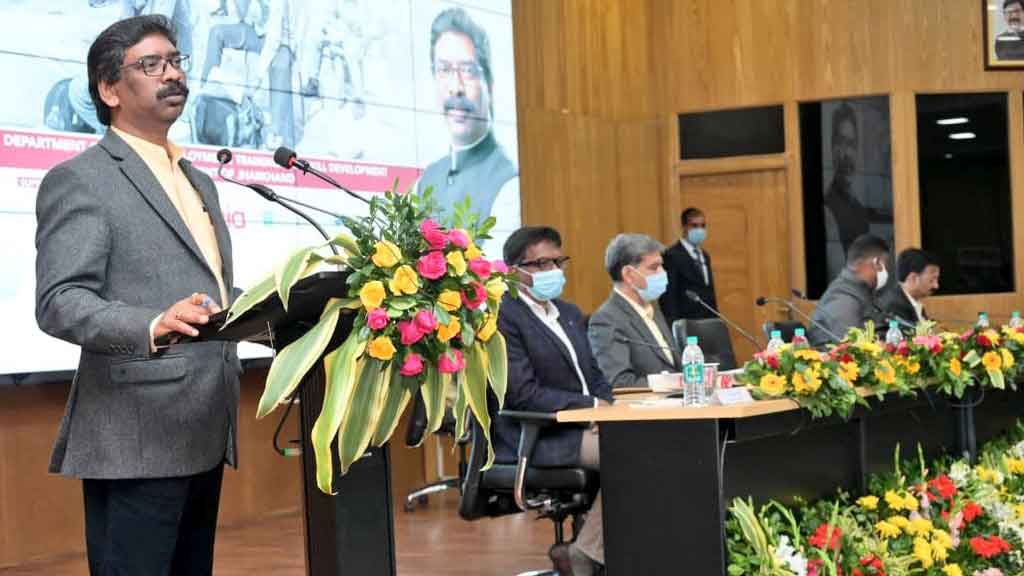The Jharkhand government on Thursday launched a special project aimed at conceiving of plans for safe migration - a first of its kind move, which chief minister Hemant Soren said was conceptualised following rigours faced by migrant labourers during the first phase of lockdown.
Named Safe and Responsible Migration Initiative (SRMI), the project is a 18-month policy initiative anchored by the state labour department. It will be supported by the Omidyar Network India and implemented by a consortium comprising the Policy and Development Advisory Group (PDAG), Partnering Hope Into Action Foundation (PHIA), the Center for Migration and Inclusive Development (CMID) and the Bharti Institute of Public Policy at the Indian School of Business (ISB), stated the policy document.
In his address at the launch ceremony, Hemant also announced that besides ensuring safe migration of labourers from Jharkhand, the government would set up corpus fund in all districts to facilitate respectable rights to any worker in the wake of his/her death in any part of the country.
He said, “For the first time, I witnessed the migrant crisis from such close quarters last year during the nationwide lockdown. It was also for the first time that we learnt about such a huge army of our people who eke out a living outside the state. At the same time, it was also a shocking eye-opener to see the problems they faced to earn livelihoods. That was when we decided on working on ways and means to ensure that whoever goes out of Jharkhand for job is extended all possible help.”
He added that although following the migrant crisis, his government worked out different schemes and plans to ensure that they get livelihood near to their homes, but it was literally not possible to accommodate all owing to numerous challenges.
He cited how the state government brought a number of labourers back to the state since lockdown despite several challenges. “The biggest problem occurs when anyone dies as his family doesn’t have resources to even bring back his body. Therefore, I have directed the chief secretary to work towards setting up a corpus fund in every district for taking responsibility to bring back their bodies respectable and handover to their families,” he said.
Those present at the event included state labour minister Satyanand Bhokta, chief secretary Sukhdev Singh, senior officials of the state government and representatives from different NGOs working in this field.
The chief secretary said that the government is not in favour of stopping any kind of migrant citing how some of the best minds of the country after going out to other countries for better future went on to become global leaders. “But we want to send our people in a proper channel. SRMI will lay framework for it to positively address many challenges of migrants,” he said.
State labour department secretary Prawin Kumar Toppo informed that during the lockdown, some 8 lakh migrant workers had returned to the state. Under SRMI project, a one-stop special centre each will be set up in Dumka, Gumla and West Singbhum — three districts with heavy migration of labourers. The centre will take care of enrolment of outbound people, regular tracking, and do different coordination jobs as defined under SRMI from time to time,” he said, adding that the government will initially focus on working along with authorities in Ladakh and Kerala, where maximum migrant takes place.
Detailing on other mandates of SRMI, another official involved with the project said, “Different stakeholders will work for increased social security and welfare coverage for migrant workers and their families through institutional policy frameworks in pilot districts and two destination regions; enabling systemic registration of migrant workers, monitoring and analysis, creating awareness amongst migrant workers through campaigns around safe and responsible migration practices among others.”











